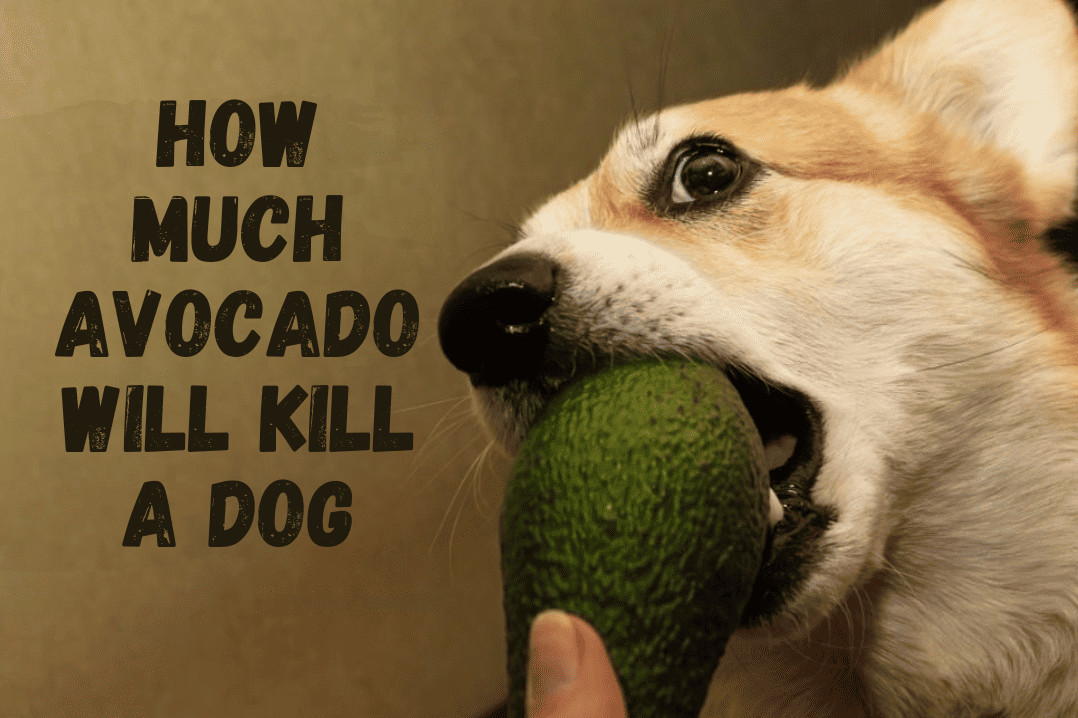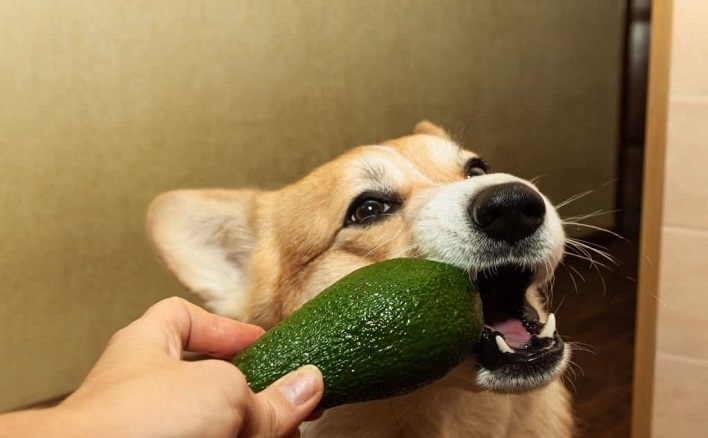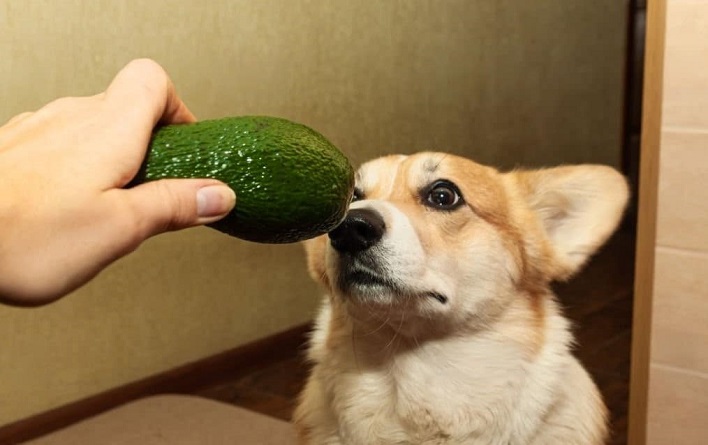
Avocado poisoning in dogs is rare, but can be fatal if not treated. While small amounts of avocado are generally considered safe for dogs, larger amounts may cause vomiting, diarrhea, and difficulty breathing. If your dog has eaten too much avocado, it is important to seek veterinary care immediately.
Avocados have become increasingly popular in recent years due to their numerous health benefits for humans. However, it’s essential to remember that what’s safe for us may not be safe for our furry friends. As a responsible dog owner, it’s crucial to be aware of the potential dangers associated with certain human foods, including avocados. In this blog post, we will explore the potential risks of avocados for dogs and provide you with essential information to keep your four-legged companion safe.
Avocado Toxicity in Dogs
It contain a substance called persin, which is harmless to humans but can be toxic to dogs, as well as to other animals such as cats, birds, and livestock. Persin is primarily found in the avocado fruit’s leaves, seed, bark, and skin. While the fruit flesh itself contains lower levels of persin, it’s still recommended to avoid feeding avocados to your dog.
Potential Risks of Avocado Consumption in Dogs

Although fruit are not inherently deadly to dogs, their consumption can lead to various health issues. Some of the potential risks associated with avocado ingestion in dogs include:
- Gastrointestinal Upset: Avocado consumption may cause stomach upset, including vomiting, diarrhea, and abdominal discomfort in dogs. These symptoms can range from mild to severe, depending on the quantity ingested and the individual dog’s sensitivity.
- Pancreatitis: Avocados are high in fat, and a diet high in fat can trigger pancreatitis in dogs. Pancreatitis is an inflammation of the pancreas that can cause severe abdominal pain, loss of appetite, vomiting, and potentially life-threatening complications.
- Obstruction: The large avocado seed presents a choking hazard for dogs. Ingesting the seed can lead to intestinal obstruction, which may require surgical intervention.
Signs of Avocado Toxicity in Dogs
If your dog accidentally consumes fruit or its parts, it’s important to watch out for signs of toxicity. Common symptoms of toxicity in dogs may include:
- Vomiting
- Diarrhea
- Abdominal pain
- Difficulty breathing
- Fluid accumulation in the chest or abdomen
- Lethargy
- Weakness
- Loss of coordination
- Tremors
- In severe cases, collapse or death
If you notice any of these symptoms, contact your veterinarian immediately.
What to Do If Your Dog Eats Avocado
If you suspect that your dog has ingested its parts, here are some steps to follow:
- Stay Calm: Panicking won’t help the situation. Take a deep breath and proceed with a clear mind.
- Contact Your Veterinarian: Inform your vet about the situation and follow their advice. They may recommend observing your dog for any signs of toxicity or instruct you to bring your pet in for an examination.
- Provide Information: Let your veterinarian know the quantity of avocado ingested, the parts consumed, and any observed symptoms. This information will assist them in providing the most appropriate guidance.
- Follow Veterinary Advice: Depending on the severity of the situation, your vet may recommend inducing vomiting, administering activated charcoal, or performing other necessary treatments.
Preventing Avocado Consumption
Prevention is always better than cure. To protect your dog from potential related risks:
- Keep avocados and avocado-related products out of your dog’s reach.
- Educate family members and visitors about the dangers of feeding avocados to dogs.
- Be cautious when disposing of avocado parts, as dogs may scavenge trash.
- Provide a safe and balanced diet specifically formulated for your dog’s nutritional needs.
What parts of the avocado should my dog avoid?
Your dog should avoid consuming the following parts of the:
- Seed/Pit: The large seed or pit of the avocado poses a choking hazard for dogs. Ingesting the seed can also lead to intestinal blockage, which may require immediate veterinary intervention.
- Skin: The skin of the avocado contains higher levels of persin, a toxin that can be harmful to dogs. It’s important to keep your dog away from avocado skins to prevent potential toxicity.
- Leaves: Avocado leaves also contain persin and can be toxic to dogs if ingested. Ensure that your dog does not have access to avocado trees or areas where avocado leaves may be present.
- Bark: Similar to the leaves, avocado tree bark can contain persin and should be avoided by dogs.
- Stem: The stem or any other parts of the avocado plant may also contain persin and should not be consumed by dogs.
To keep your dog safe, it’s best to prevent them from accessing any part of the avocado, including the skin, seed, leaves, bark, and stems.
How much avocado is okay for my dog to eat?

It is generally recommended to avoid feeding avocados to dogs, even in small amounts. While small quantities of avocado flesh are unlikely to cause immediate harm, avocados contain persin, which can be toxic to dogs, especially in larger quantities or if your dog is particularly sensitive.
The high-fat content of avocados can also lead to digestive upset and potential pancreatitis in dogs. It’s important to note that dogs have different digestive systems than humans, and foods that are safe for us may not necessarily be safe for them.
Instead of avocados, it’s best to provide your dog with a balanced and nutritionally complete diet specifically formulated for their needs. Consult with your veterinarian about appropriate food choices and portion sizes for your dog to ensure their nutritional requirements are met without any potential risks associated with avocados.
Commercial Avocado Dog Food
As of my knowledge cutoff in September 2021, there are no commercially available dog foods specifically formulated with avocado as the primary ingredient or as a significant component. While avocados can provide some nutritional benefits for humans, they are not considered an essential ingredient in dog food formulations.
Dog food manufacturers typically focus on using ingredients that meet the nutritional requirements of dogs, such as high-quality animal proteins, grains, vegetables, and fruits that are safe and beneficial for canine consumption. These formulations undergo rigorous testing and adhere to industry standards to ensure the safety and nutritional balance of the product.
If you are looking for commercial dog food options, it is best to choose reputable brands that have undergone quality testing and meet the nutritional guidelines established by veterinary associations, such as the Association of American Feed Control Officials (AAFCO) in the United States or equivalent regulatory bodies in other countries.
Always consult with your veterinarian to determine the most appropriate diet for your dog based on their specific needs, such as age, breed, size, and any underlying health conditions. They can provide recommendations and guidance on selecting a suitable dog food brand that meets your dog’s nutritional requirements.
Quick Review
While avocados offer several health benefits for humans, they pose potential risks to dogs due to the presence of persin and high-fat content. As responsible pet owners, it’s crucial to prioritize the well-being of our furry companions by avoiding avocado consumption. By understanding the dangers associated with avocados and taking appropriate preventive measures, you can help ensure your dog’s health and safety.
Remember, if you suspect your dog has ingested avocado or shows any signs of toxicity, consult your veterinarian promptly.
FAQs
Can dogs eat avocado?
While small amounts of avocado flesh may not cause immediate harm, it’s best to avoid feeding avocados to dogs altogether. Avocados contain persin, which can be toxic to dogs. The high-fat content can also lead to digestive issues and potential pancreatitis.
What parts of the avocado are toxic to dogs?
The avocado’s leaves, seed, bark, and skin contain higher levels of persin and are more toxic to dogs. The flesh of the avocado also contains lower levels of persin and high-fat content, making it advisable to avoid feeding avocados to dogs entirely.
What are the symptoms of avocado toxicity in dogs?
Signs of avocado toxicity in dogs may include vomiting, diarrhea, abdominal pain, difficulty breathing, fluid accumulation, lethargy, weakness, tremors, and loss of coordination. In severe cases, collapse or death may occur. If you notice any of these symptoms, contact your veterinarian immediately.
What should I do if my dog ate avocado?
If your dog ingests avocado or its parts, stay calm and contact your veterinarian. Provide them with information about the quantity consumed, parts ingested, and any observed symptoms. Your vet will provide guidance on whether observation or immediate treatment is necessary.
How can I prevent my dog from eating avocados?
To prevent your dog from consuming avocados:
- Keep avocados and avocado-related products out of your dog’s reach.
- Educate family members and visitors about the dangers of feeding avocados to dogs.
- Be cautious when disposing of avocado parts, as dogs may scavenge trash.
- Provide a safe and balanced diet specifically formulated for your dog’s nutritional needs.
Can Dogs Eat Guacamole?
Guacamole is typically made with avocados, which contain a substance called persin that can be toxic to dogs, especially in larger quantities. Additionally, guacamole recipes often include ingredients like onions, garlic, spices, and even tomatoes, which can be harmful or irritating to dogs’ digestive systems.
